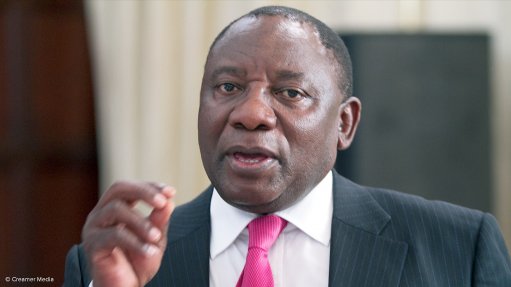
Deputy President Cyril Ramaphosa
Photo by: Duane Daws
South Africa and Sweden agreed to extend the Swedish-sponsored full scholarship programme, which provides the opportunity for study at a postgraduate level for South African students at Swedish tertiary institutions in a range of fields, until 2021.
The agreement was signed during the ninth session of the Bi-national Commission (BNC) between the two countries, in Stockholm, by Sweden’s Deputy Prime Minister Åsa Romson and South Africa’s Deputy President Cyril Ramaphosa.
Further, the parties also signed a memorandum of understanding on water resources management and a letter of intent on environmental protection and climate change, while both countries also expressed their intent to finalise a memorandum of understanding in the field of energy.
The two States also agreed to establish a new committee on environment, water and energy to cover new areas of cooperation of particular significance for sustainable development, as the countries were committed to contribute towards a positive conclusion of the Conference of the Parties, or COP21, in Paris, in December.
The committee would collaborate on a range of issues, including chemicals and waste, water resource management and the information platforms Water and Climate Change Information for Africa and Drought Early Warning Detection.
Further efforts would also be made to deepen and develop economic relations, in trade and investment and areas such as energy, information and communications technology, mining and transport infrastructure.
A committee on science and technology noted the significant progress on scientific relations between the two countries. It highlighted an agreement between the South African National Research Foundation and the Swedish Foundation for International Cooperation in Research and Higher Education which had already resulted in a research call with 103 applications received.
An adjudication process of these research applications was currently under way.